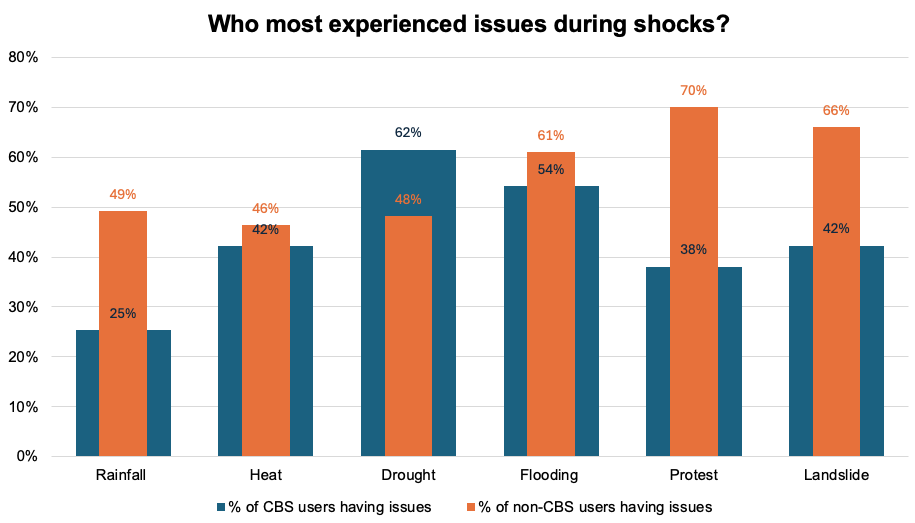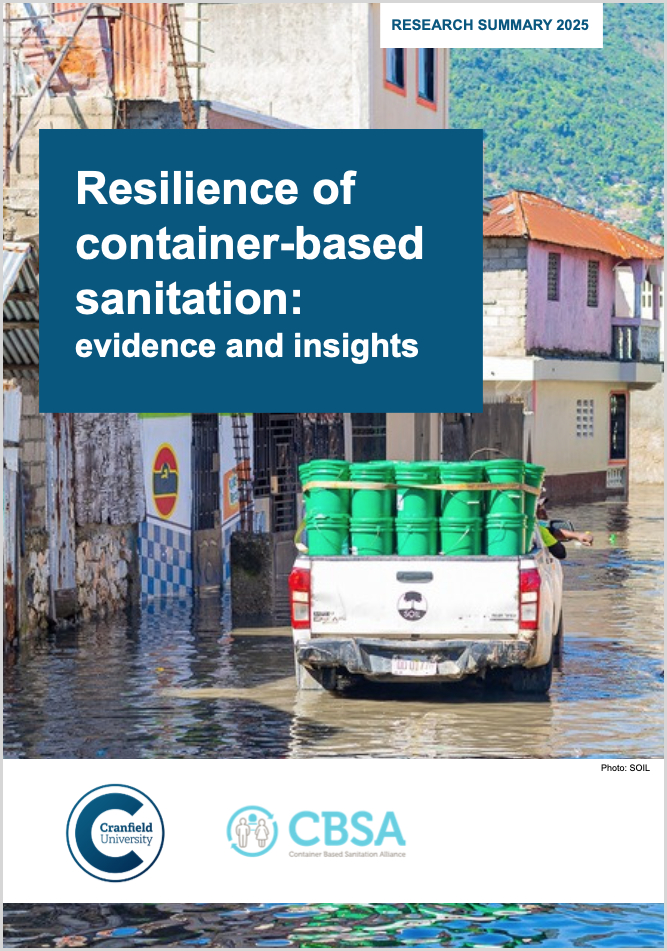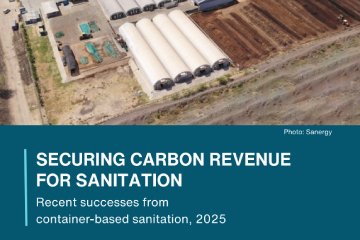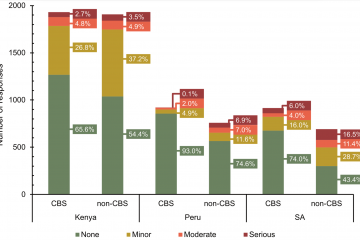When floods, storms, or protests hit a city, sanitation services are often among the first to be disrupted. New research from CBSA and Cranfield University combining interviews with CBS providers and comparative data shows how CBS can keep working under pressure – thanks to smart design, close customer relations and flexible management.
Resilient by design – and by practice
CBS services are inherently robust. Sealed, portable containers prevent contamination during floods, while water-efficient designs allow services to continue during water scarcity. Beyond the hardware, sanitation as a service allows proactive management for safety and continuity: training users, supporting staff, and following emergency protocols.
The study unearthed real-world examples of how sanitation providers prepare for and respond to shocks: raising toilets above flood levels, pre-positioning containers and cover material, switching vehicles when roads become impassable, and maintaining direct communication with users to sustain services through disruption. Strong relationships with communities were also found to be key, enabling providers to anticipate challenges, coordinate effectively during shocks, and maintain safe sanitation access even during floods, storms and protests.
Comparative evidence shows CBS fewer disruptions with CBS
As well as interviews with providers, the study analysed secondary data across Nairobi, Lima, and Cape Town comparing CBS and non-CBS users during climate- and event-related shocks. CBS users consistently reported fewer toilet problems during floods, heavy rains, and most other crises.

Reinforcing CBS as a key climate-resilient solution
This study complements existing evidence showing CBS benefits for mitigation, making it a strong example of climate-resilient sanitation, which prioritises service continuity and seeks to cut emissions where possible. By frequently collecting and treating waste, and often separating faeces from urine, actively managed services such as CBS reduce anaerobic degradation and related emissions. Most CBS providers not only actively manage their services but also convert waste into reuse products such as fertilisers, biogas, and soil conditioners – which can significantly reduce emissions (79-93% over typical sanitation options) and supporting the circular economy in ways valued by climate funds such as the Green Climate Fund.
Protecting services in an uncertain climate
As climate shocks become more frequent, the importance of resilient sanitation is growing. By embedding CBS within broader climate and sanitation planning, cities can protect service continuity, strengthen equity, and safeguard public health.
To realise CBS’s full potential to enhance resilience, governments and development partners can:
- Integrate CBS into urban sanitation and climate strategies
- Include CBS in efforts to mobilise climate finance
- Strengthen evidence and data on CBS performance under shocks
To learn more, download and explore the research summary (PDF, 1Mb) and briefing paper (PDF, 375Kb):



